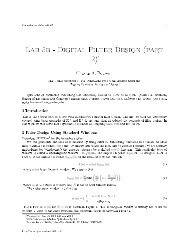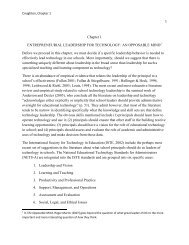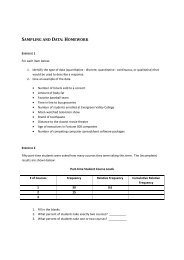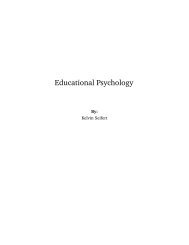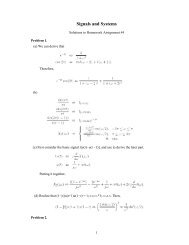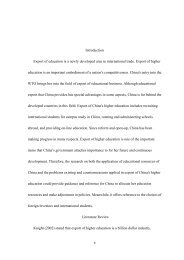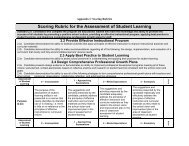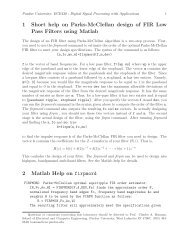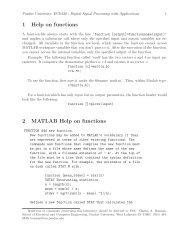Blazing New Trails - Connexions
Blazing New Trails - Connexions
Blazing New Trails - Connexions
Create successful ePaper yourself
Turn your PDF publications into a flip-book with our unique Google optimized e-Paper software.
90 CRITICAL ISSUES IN SHARED LEADERSHIP<br />
relationship. In looking at the relationship between depersonalization and personal<br />
accomplishment, disengagement because of a perceived lack of control and an inability for<br />
self-efficacy could hamper decision making and problem solving ability resulting in lowering<br />
perceived levels of personal accomplishment. With the emergence of a strong sense of an<br />
internal locus of control and a strong internal moral compass, sense of self-efficacy, one could<br />
still feel disengaged, thus scoring high on the depersonalization scores. Yet through a positive<br />
and reciprocal interaction of the internal locus of control and self efficacy, a strong sense of<br />
responsibility could emerge forcing relationships to be maintained despite the emotional<br />
disengagement remaining. Similarly, a strong sense of responsibility would not lower the<br />
degree of emotional exhaustion and, in fact, taking responsibility could easily increase<br />
tensions among people raising perceptions of emotional exhaustion higher. Yet, this same<br />
strong sense of responsibility would also raise personal accomplishment perceptions in the<br />
pride of fulfilling one’s responsibilities.<br />
A positive, spiraling, reciprocal interaction between self-efficacy and an internal locus<br />
of control is one possible way of explaining the findings in this study. Further research is<br />
needed to explore the viability of this explanation. However, should this explanation be<br />
supported through more rigorous and controlled studies, such a model could provide the<br />
means for reducing or preventing burnout in special educators. Specifically, rather than<br />
attempting to reduce emotional exhaustion or depersonalization that are produced by difficult<br />
to control, complex environmental and organizational factors, the findings of this study<br />
support the notion that raising personal accomplishment perceptions could reduce burnout<br />
experienced by special education directors and is a more realistic possibility than shifting<br />
complex environmental and organizational factors. The finding that two-thirds of special<br />
education directors in Montana are not suffering from burnout solely because of perceptions<br />
of high personal accomplishment supports the implication that raising personal<br />
accomplishment perceptions could reduce burnout. More research is necessary to establish the<br />
effective methods and strategies for elevating the personal accomplishment perceptions held<br />
by special educators.<br />
Finally, this study found no differences based on gender or work environment (school<br />
district vs. special education cooperative) and no relationships among any of the burnout<br />
dimensions and educational level or experience in the current position. Some previous<br />
research studies have found differences or relationships among these variables; however,<br />
others demonstrate no differences (Edmonson, 2001; Wisniewski & Gargiulo, 1997). A<br />
possible reason for such variability among the studies on special education administrator<br />
burnout could be attributed to a lack of sensitivity in the instrument used in many of the<br />
studies. The MBI-ES survey was developed and normed for educators rather than educational<br />
administrators, although it has been used for administrators in past research studies.<br />
Developing and using an instrument generated for administrators could yield more precise<br />
and pertinent information. Additionally, the fact that this instrument was not normed for<br />
educational administrators was a limitation of this study and a potential source of error.<br />
In conclusion, it appears that approximately one-sixth of special education directors in<br />
Montana were suffering from job-related burnout with another one-sixth currently at risk for<br />
job-related burnout. Most importantly, for the remaining two-thirds of special education<br />
directors in Montana, perceptions of high levels of personal accomplishment separated them<br />
from those experiencing job-related burnout. This finding was important in that it suggested a<br />
possible and obtainable means of preventing burnout among individual special educators and<br />
curtailing the epidemic of job-related burnout experienced by practitioners throughout the<br />
field of special education. As noted in the introduction, special education administrators



